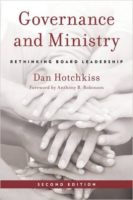
The most lasting legacy of the Covid epidemic may not be the new ways people can show up, important as those are. The most lasting legacy may be new ways of thinking about when and whether to show up. For congregations, the era of attracting people by low expectations may have come to a belated end.
Most congregations long ago abandoned strict attendance rules. But we still judge our success by standards set in earlier eras. In many churches, a member must show up in person at least twice a month to be considered “active.” For Jews, the comparable standard might be showing up once or twice a year for the high holidays—and getting 100% of their children to show up for a bar or bat mitzvah.
Covid broke the habit of attendance for a lot of congregants. Some will come back, but many have found other ways to spend their time. Congregational leaders are wondering, “When will they come back? How can we get people to return?”
We are not alone. Professors report that students do not come to class as often as they used to. Bosses who require workers to return to offices and shops have discovered that some workers quit in favor of a job that lets them work from home. Some schools and workplaces will roll with the trend and become fully virtual. Others will attract those who like—and thrive on—physical proximity.
But the widely held assumption that belonging necessarily means showing up at a particular frequency seems unlikely to return.
The Race to Be Lax
Worship attendance reached a high of maybe 50% during the 1950s, with affiliation estimates ranging up to 70%. Many people then felt pressured to find a congregation, join it, and attend. Cultural controversies were often cast in religious terms—Catholic vs. Protestant, liberal vs. Evangelical, Christian vs. non-Christian.
Meanwhile, congregations began to advertise themselves as strict or lax. Strict congregations emphasized distinctive doctrines and behavior rules. Lax ones opened their arms wide, demanding little and requiring only vague assent to general principles or notions. For a while, the lack of rules and expectations was a powerful driver of lax congregations’ growth.
But in our time laxness has begun to lose its savor. Non-affiliation is an utterly accepted option, and so people are no longer relieved to learn that they can have the respectability of congregation membership without the inconvenience of examining their lifestyles or beliefs. Why join a congregation when you can believe and act as you wish at home?
Laxness has always been a problematic selling point. Many congregations open with “Whoever you are, wherever you are on life’s journey, you are welcome here,” but then, sooner or later, talk about how a faith commitment might disturb a person’s way of life, or ask for contributions of “time, talent, and treasure”—some newcomers will sense a bait-and-switch. Smart leaders drop hints from the beginning that faith can be challenging as well as open.
Strict and Lax Together
Both poles of the strict-lax spectrum appear in every congregation. In part, this happens because “openness” is not enough. A faith community needs to stand for something, and if it does, it will stand also against some other things. It may welcome everyone, but if its values are apparent, it will repel some and attract others. Those values may be religious doctrines or political positions or moral stances. If they amount to more than platitudes, they signal that while all are welcome, some do not belong.
Many congregations fear to choose a spiritual center because someone might feel left out. Ironically, such congregations exclude almost everyone. Some people know this and will advocate—perhaps only from the margin—for centering community more firmly.
Laxness Is Not Easy
Another reason congregations fail at being simply lax is a paradox built into the whole idea: Laxness is not as easy as it sounds!
I’ll never forget visiting an elderly woman on her deathbed when I was a student intern. She was a long-time Unitarian, and wanted me to know she had discovered, in her long life, that what sounds easy—“You can believe whatever you like”— turns out to be very challenging: “I found out I only can believe what I discover to be true. And then I have to act on it!”
She also wanted me to know that “All are welcome here”—which also sounds so easy—means you have to learn to welcome people who are different from yourself. This teaching pointed into what, for me, has been a long learning process about difference. The depth of my assumptions about what “everybody” has in common has been challenged over and over by people who have taught me just a little about what it means to be female, Black, Indigenous, or to belong to any of a thousand subcultures of ethnicity, experience, sexual identity and orientation, disability, and faith.
That woman’s deathbed teaching has sustained me through a lot of painful learning. Thank you, Lillian!
The Covid pandemic has hastened the race toward laxness to its end. Some congregations will return to the old strict requirements and expectations. Others will invite people into a new covenant—strong communities of expectation based not on oppressive social pressure but on voluntary choice.
Dan Hotchkiss has consulted with a wide spectrum of churches, synagogues, and other organizations spanning 33 denominational families. Through his coaching, teaching, and writing, Dan has touched the lives of an even wider range of leaders. His focus is to help organizations engage their constituents in discerning what their mission calls for at a given time, and to empower leaders to act boldly and creatively.
Dan coaches leaders and consults selectively with congregations and other mission-driven groups, mostly by phone and videoconference, from his home near Boston. Prior to consulting independently, Dan served as a Unitarian Universalist parish minister, denominational executive, and senior consultant for the Alban Institute.


